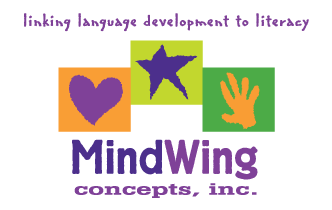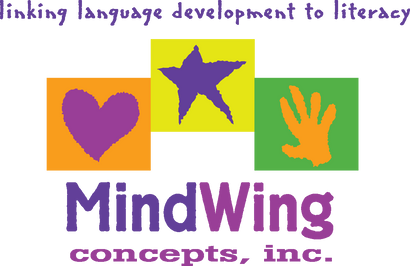Secure Checkout. FREE SHIPPING for Continental U.S. Orders over $60.
Menu
-
- Home
-
About Us
-
The Approach
-
Linking Language & Literacy
-
MindWing Learning
-
Learning Resources
-
SHOP
-
Blog
-
- About MindWing
- Our People
- Contact Us
- Your Account
- Login
-
United States (USD $)

Secure Checkout. FREE SHIPPING for Continental U.S. Orders over $60.
Tool Tuesday: Summer Study Series Part 1— “Translating MindWing’s Approaches to Older Students”
by Sean Sweeney May 28, 2024 3 min read
 Welcome to 2024’s Summer Study Series! Some of you are wrapping up school in the next few weeks, while in Massachusetts we toil on until mid-June. With Memorial Day—the de facto start of summer— having passed, let’s say it’s on. For the next few months in this space we will present summaries and helpful connections to our professional literature, because that is certainly a tool, too!
Welcome to 2024’s Summer Study Series! Some of you are wrapping up school in the next few weeks, while in Massachusetts we toil on until mid-June. With Memorial Day—the de facto start of summer— having passed, let’s say it’s on. For the next few months in this space we will present summaries and helpful connections to our professional literature, because that is certainly a tool, too!
I have often reflected that MindWing’s approaches have equipped me with invaluable tools when working with younger populations, but also older clients. While still focused on pediatrics, I often have an adult or two on my caseload who presents with language comprehension or expression difficulties. Having learned extensively about macrostructure from Story Grammar Marker® and ThemeMaker®, I find that these tools translate well, with a little adaptation.
For example, I have had several adult clients recently who were seeking assistance with job interviews. In looking at sample job questions for their targeted field, I noted how many of the The job-hunting site  questions were designed to prompt a narrative, list, sequence, description or cause-effect explanation. Indeed is often a great resource for this kind of preparatory material, as indicated by the linked list of questions.
questions were designed to prompt a narrative, list, sequence, description or cause-effect explanation. Indeed is often a great resource for this kind of preparatory material, as indicated by the linked list of questions.

This leads me to this month’s article, available to ASHA members or via your college library from Language, Speech and Hearing Services in Schools, entitled “Implementing a Metalinguistic Approach to Secondary School Writing” (Telesca, 2023). Some key points:
- The article notes that with the rise of technology, writing has become a key vocational AND SOCIAL means of communication for young adults, and the skills of composing posts or emails (I worked on that with an adult client recently) are critical.

A quick glance at my Facebook memories shows how many posts I shared were stories or lists. For a resource less designed for the olds, look at TikTok and consider the structure(s) of what you see shared there.
- The article provides detail on the expectations of secondary school students (applying also to post-secondary and adult life) in terms of Common Core standards and those associated with The National Assessment of Educational Progress (NEAP) in reading and writing, in the latter case much less developed in the sense of data on performance.
- A key point on the connection to narrative and expository text structures is a description of different types of writing a high school student might be asked to do in one day of school: a lab report, summary, and persuasive essay.
- The article describes evidence-based approaches including Self-Regulated Strategy Development (SRSD) which contains components for organization which jibe completely with the use of expository text structures such as those provided in ThemeMaker®.
- Organizational and instructional strategies are detailed in the article, and this quote reminded me squarely of the guidance of Key Words/Cohesive Ties on the ThemeMaker® Information Maps: “Knowledge of language form (i.e., sentence types, sentence word order, transition or signal words) must also be used to organize the generated ideas into sentence-level discourse.”
- Most helpfully, the article presents specific prompts at different levels of scaffolding to help other students progress with writing tasks (applying also to oral language tasks like responding to an interview question or planning a presentation), in the areas of “Planning, Translating and Reviewing.”
I hope you’ll read this article and, as I did, come away with new strategies and reinforcement that what you have learned with the use of MindWing’s tools is really translatable to all ages!
Sean Sweeney
Sean Sweeney, MS, MEd, CCC-SLP, is a speech-language pathologist and technology specialist working in private practice at the Ely Center in Needham, MA, and as a clinical supervisor at Boston University. He consults with local and national organizations on technology integration in speech and language interventions. His blog, SpeechTechie (www.speechtechie.com), looks at technology “through a language lens.” Contact him at sean@speechtechie.com.
Leave a comment.
Comments will be approved before showing up.
